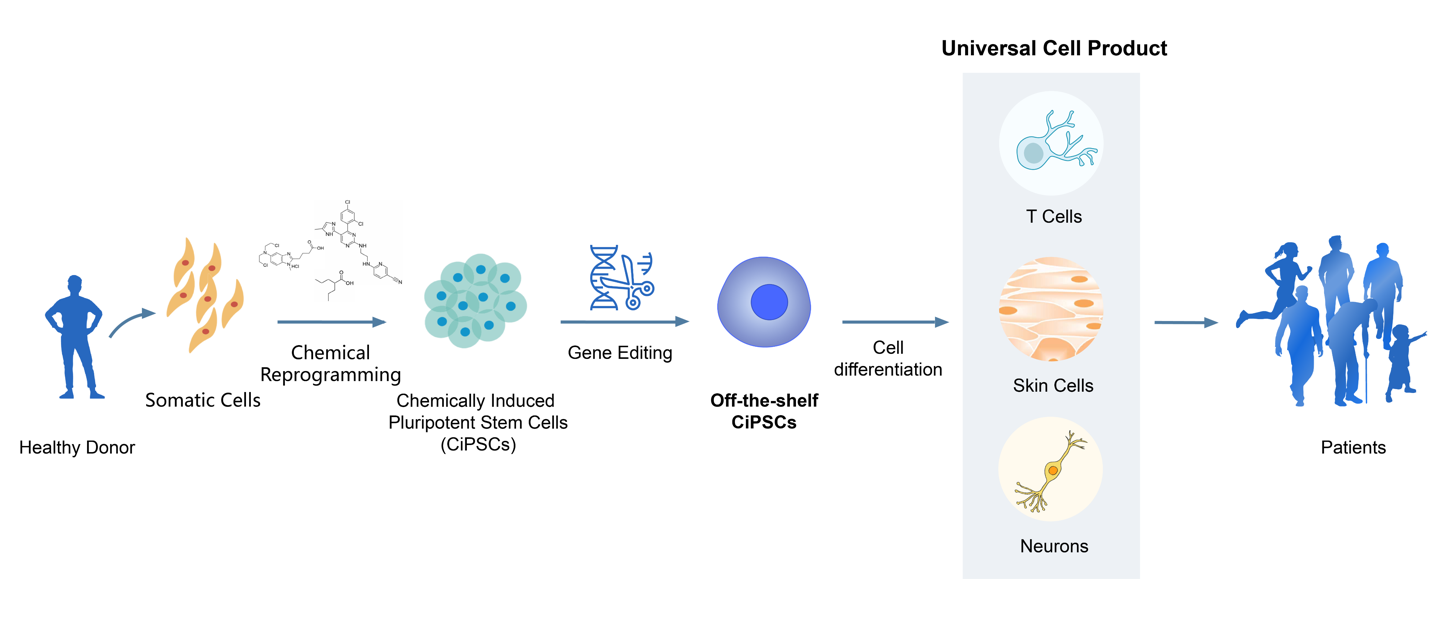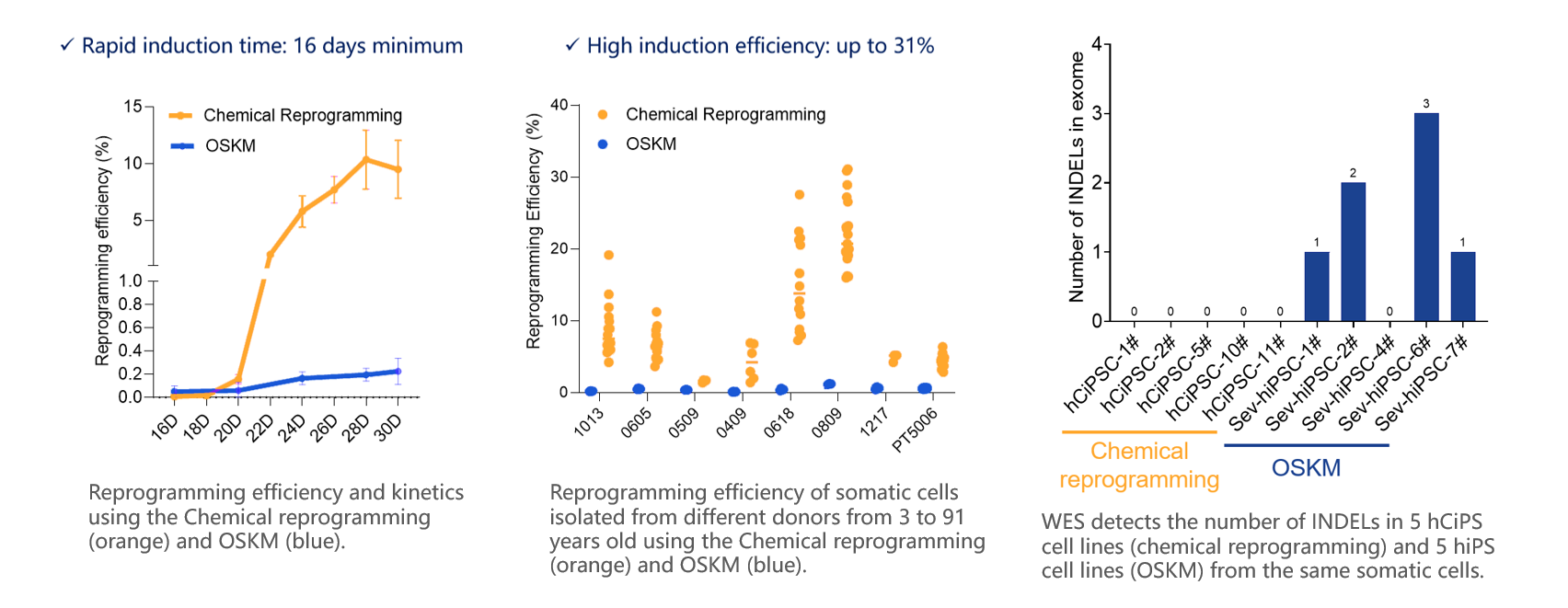CiPSC Platform
A growing number of iPSC based regenerative medicines are entering clinical trials, bringing new hope for patients with incurable diseases. One of the most common and pressing challenges facing this industry is the safety concern due to genomic instability and mutation burden from the starting material, partially attributed to the reprogramming process mediated by transcription factors.
To address this challenge, BeiCell's scientific founder, Dr. Hongkui Deng has developed an innovative technology to reprogram human somatic cells into human induced pluripotent stem cells using fully defined small molecules, known as CiPSC.

Major advantages of the CiPSC technology are:
Efficiency: Cell reprogramming can be completed at >10% efficiency.
Safety: Low mutation rate. The reprogramming factors are easy to remove, and there is no concern of genome integration.
In 2013, Professor Deng's research team reported that, during mouse somatic cell reprogramming, pluripotency can be induced with lineage specifiers that are pluripotency rivals to suppress ESC identity, most of which are not enriched in ESCs. This study suggests a seesaw model in which a balance that is established using pluripotency factors and/or counteracting lineage specifiers can facilitate reprogramming.
Shu et al., Cell, 2013
In 2015, Professor Deng's research team discovered an intermediate state called (XEN)-like state which is similar to extraembryonic endoderm in the process of chemical reprogramming, and based on this, he established a more efficient method of using small molecules to induce CiPS cells, revealing the molecular mechanism of chemical reprogramming that is different from traditional reprogramming.
Zhao et al., Cell, 2015
In 2018, Professor Deng's research team systematically studied the process of small molecule-induced somatic cell reprogramming for the first time at the single-cell and whole-transcriptome levels, discovered key molecular events, and answered important scientific questions such as how the pluripotency regulatory network is gradually established, and used these insights to further optimize the small molecule induction method, which significantly accelerated the reprogramming process.
Zhao et al., Cell stem cell, 2018
On April 13, 2022, Professor Deng's research team reported the breakthrough research achievement of using small molecules to induce human somatic cells to transform into pluripotent stem cells for the first time internationally. Chemical reprogramming is a new generation of human pluripotent stem cell generation technology after "Nuclear transfer" and "Transcription factor induction", which is a great contribution to the development of stem cells and regenerative medicine. It solves the bottleneck problem of basic technology.
Guan et al., Nature, 2022
In 2022, Professor Deng published a paper in Nature medicine with his collaborators. In this study, they generated islets from human chemically induced pluripotent stem cells (hCiPSC-islets) and show that a one-dose intraportal infusion of hCiPSC-islets into diabetic non-human primates effectively restored endogenous insulin secretion and improved glycemic control.
Du et al., Nature medicine, 2022
On March 20, 2023, Professor Deng's research team published a paper in Cell Stem Cell. The paper, titled "Highly efficient and rapid generation of human pluripotent stem cells by chemical reprogramming", reported a breakthrough in CiPSC technology. The researchers established an innovative chemical reprogramming system that can swiftly and efficiently reprogram human adult cells into pluripotent stem cells. This unique metabolic reprogramming fuel cell proliferation and cell fate transition.
Shijia et al., Cell stem cell, 2023
On May 20th, 2023, Beicell Therapeutics and Peking University Third Hospital jointly launched a training program on chemically induced pluripotent stem cells. The program was hosted by Dr. Zhujialiang and Dr. Liubei, and for the first time in the world, publicly released information on Beicell Therapeutics 's exclusive developed reagent kit and announced its opening for external sales.
In 2023, Professor Deng published a paper in Nature Metabolism with his collaborators. In this proof-of-principle study, they find that hPSC islets survive and gradually mature after transplantation, leading to improved glycemic control in diabetic primates.
Liang et al., Nature metabolism, 2023
Off-the-shelf Cell Therapy
BeiCell's off-the-shelf cell therapy strategy starts from generating an inexhaustible amount of high quality CiPSCs from healthy donors as the starting material. Next, our proprietary hypoimmune platform and Xeno-free differentiation protocols enable us to mass produce cell products with desired functionality and low immunogenicity. This approach drastically reduces cost of manufacturing, and improves the consistency and accessibility of life-saving cell therapy products.

